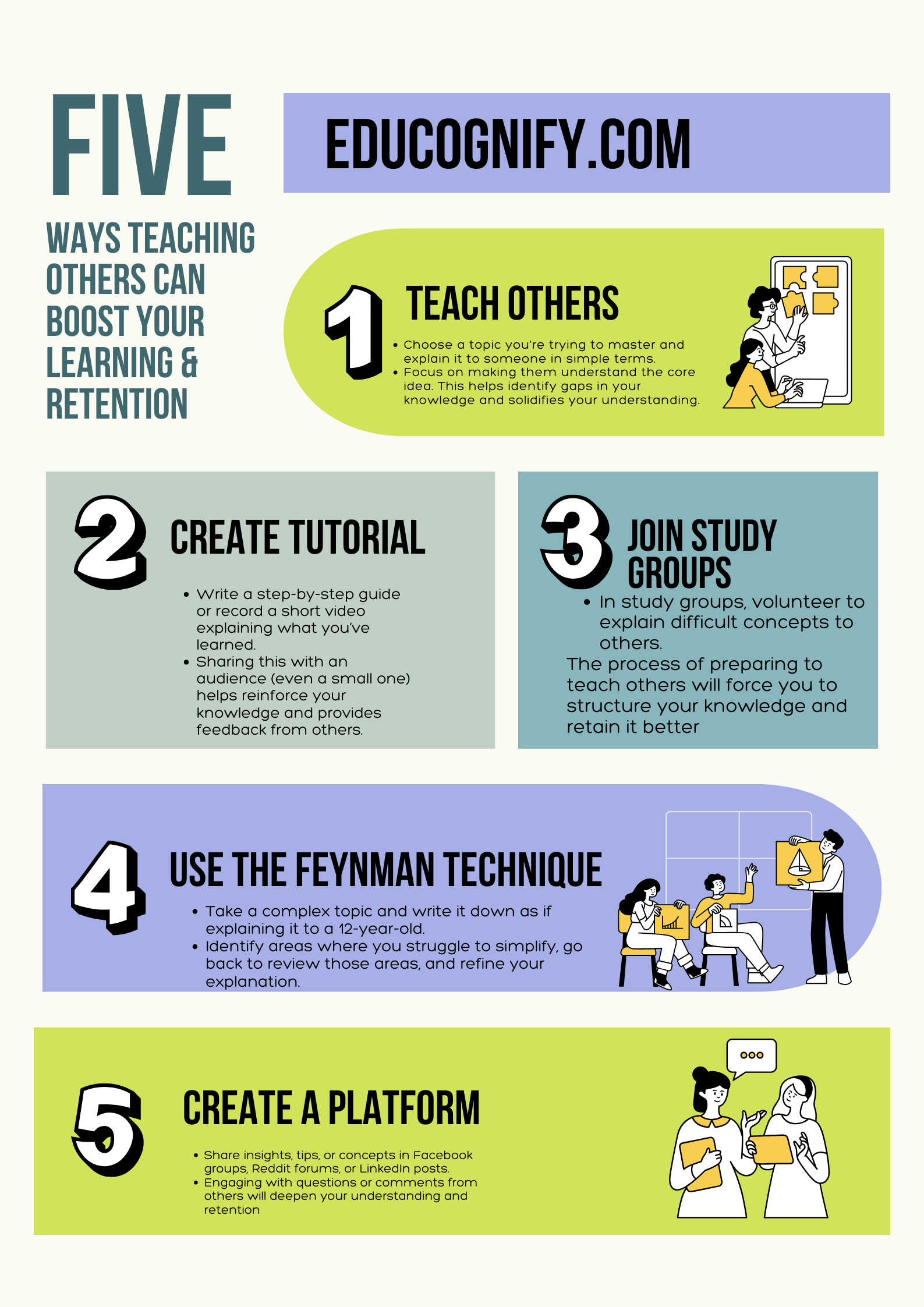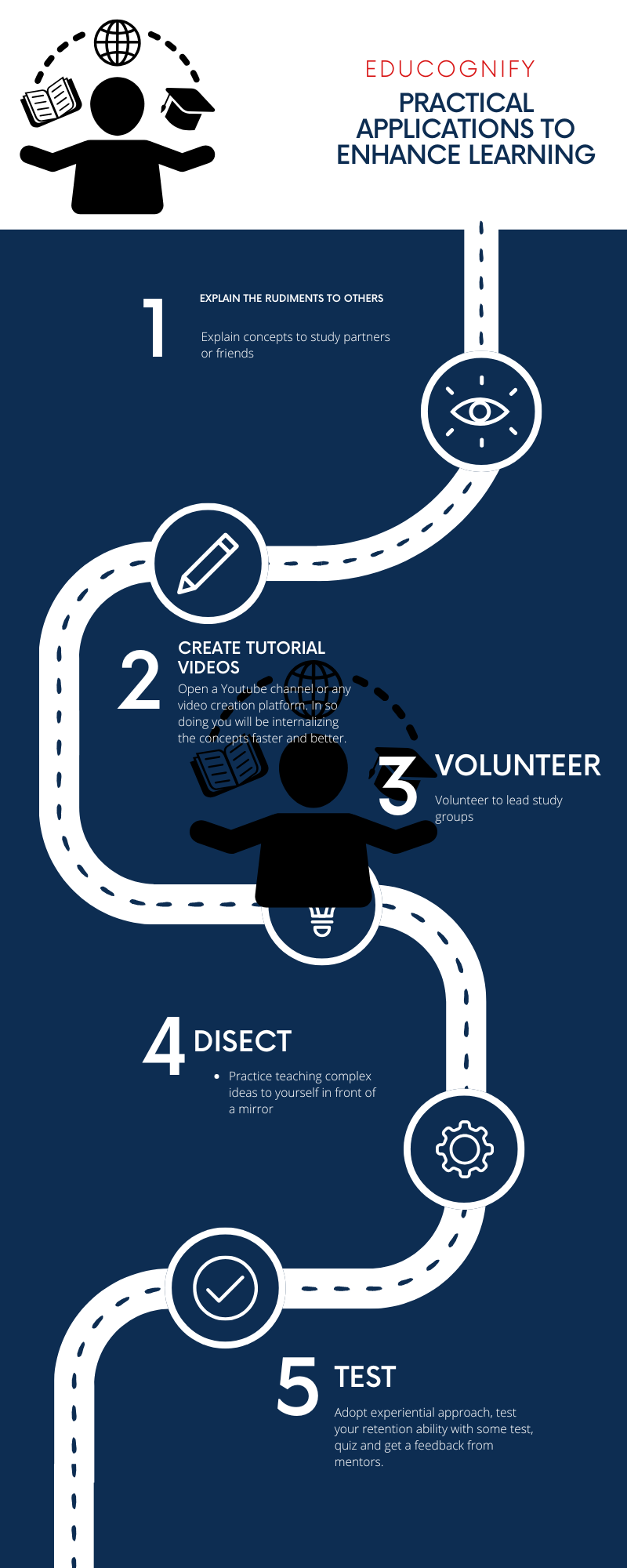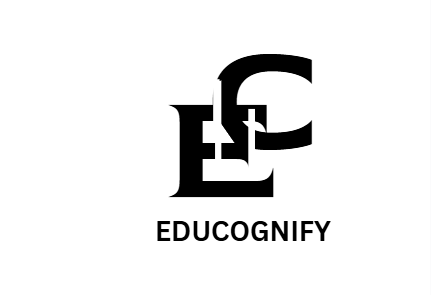
Have you noticed how explaining something to another can increase your own understanding? That isn’t by chance; teaching others can be used as an invaluable way of deepening learning and retention for both yourself and others. By passing knowledge along, not only are you helping other individuals but you’re reinforcing your own grasp on a subject as you share information with them. 5 Ways Teaching Others Can Boost Your Learning and Retention
This article delves into five effective techniques of teaching as a learning strategy to transform and advance one’s own educational journey. Whether you are an advanced learner or simply starting off on your educational path, taking on the role of a teacher will bring many unexpected advantages.
5 Ways Teaching Others Can Boost Your Learning and Retention
Teaching others is not simply one-way; it’s also a potency tool to advance your own learning and retention. When taking on the role of educator, not only are you spreading information but you’re reinforcing your understanding.
Teaching others can be an extremely powerful means of improving your own learning and retention. Let’s examine five ways in which teaching others can significantly boost your learning outcome, and improve long-term retention of information. By adopting them into your study routine, not only will you become a more efficient educator but also a more adept learner who retains information more effectively for a long time.
Explaining Concepts Deepen Your Understanding
Teaching others creates what’s known as the “protege effect.” This cognitive process forces you to break complex ideas down into simpler pieces so they’re easier for students to grasp, all while reinforcing your own grasp on material as you organize thoughts coherently, filling any knowledge gaps along the way.
Teaching can reveal areas in your knowledge where there may be gaps. When answering students’ inquiries, questions might challenge assumptions or bring to light aspects you hadn’t considered fully before. Such moments of realization serve to deepen and refine understanding on a subject matter as you deepen it further and build up expertise.
Teaching naturally employs active recall as an effective learning technique. When explaining concepts without recourse to notes, active recall allows your memory to access more knowledge than it did previously and strengthen neural pathways associated with that knowledge. Furthermore, discussing ideas with your students helps forge new connections among disparate pieces of data to increase comprehension and retention of a subject matter.
Answering Questions Reveals Knowledge Gaps
When you teach people, you are frequently confronted with questions you may not have considered previously. This process of receiving inquiries can be instructive, showing areas where your understanding may be partial or imperfect.
As you try to explain concepts to others, you may experience moments where your explanation falls flat or where clarity seems lacking. These instances serve as indicators that knowledge gaps exist within yourself, by acknowledging these areas you can focus your efforts on strengthening them further.
Answering questions forces you to express your knowledge in new ways, making this mental activity essential for reinforcing understanding and leading to new insights. You might discover connections among ideas you hadn’t recognized or find new approaches for conceptualizing complex subjects.
Every question that arises presents an opportunity for personal development. By welcoming the challenge of answering another individual’s inquiry, you create a continuous feedback loop which enhances both teaching and refining knowledge, leading you to attaining an in-depth and nuanced knowledge base of whatever subject matter it covers.
Teaching Is Active Learning and Increases Recall
When teaching others, rather than passively receiving information, you’re actively processing and organizing it yourself, actively forcing your brain to work harder at understanding and remembering information better. At the same time as you’re explaining concepts to other learners, your understanding deepens as it strengthens neural connections for later recall of information.
Studies have demonstrated that students who anticipate teaching material to others outperform those who simply expect to take tests on it. This phenomenon, known as the “protege effect,” demonstrates the impact that teaching has on student outcomes; taking on this role increases your own knowledge as you identify gaps that need filling and work toward closing them yourself.
Practical Applications to Enhance Learning

To harness the power of teaching for your own learning:
- Explain concepts to study partners or friends
- Create tutorial videos or write blog posts on topics you’re studying
- Volunteer to lead study groups or tutor others in your field
- Practice teaching complex ideas to yourself in front of a mirror
By practicing teaching complex ideas to yourself in front of a mirror, you’ll not only help others better comprehend and retain material but will also significantly boost your own comprehension and retention levels.
You Get a New Perspective on the Topic
As you explain concepts to others, you may uncover unexpected relationships among ideas you hadn’t considered previously. Additionally, this articulation process frequently uncovers gaps in your own knowledge that require filling to strengthen and deepen understanding of any topic at hand.
Teaching requires adaptability when presenting information in different forms to address different learning styles and promote understanding and retention among students. You should develop this capacity yourself as you gain the skill of approaching topics from multiple directions.
Students’ questions often force us to reconsider our assumptions on a subject, encouraging us to question how we understand things and investigate alternative viewpoints, leading us to gain a more in-depth knowledge base.
By becoming an educator yourself, you gain invaluable insights that can greatly enhance your own learning experience. Teaching can become an indispensable resource for both personal growth and subject-matter mastery.
Teaching Enhances Communication Skills
Teaching others forces you to simplify complex ideas into bite-size chunks and develop clear and succinct expressions. In doing so, teaching allows you to hone your ability to articulate ideas clearly and concisely as you explain concepts to students with diverse levels of comprehension, you’ll gain the ability to tailor your words and examples to different audiences. This skill is beneficial in both personal and professional situations, where efficient communication is essential for success.
Teaching isn’t all talking; it’s also listening. As an educator, you will develop the ability to pick up on subtle cues indicating whether students understand material presented. With practice comes improved active listening skills in all spheres. Furthermore, as your teaching ability advances you may wish to take on more demanding teaching roles for personal and professional growth.
Regular teaching experiences naturally build your confidence when speaking in front of groups, be it classroom or workshop. Your comfort when communicating your ideas before others will increase exponentially, providing an edge in presentations, meetings and professional situations where public speaking may be necessary.
Conclusion
Teaching others can be an extremely powerful means of increasing your own learning and retention. Through explaining concepts, answering questions, developing materials and receiving feedback as you gain new perspectives you are sure to solidify your own understanding while uncovering areas for development.
References:
Canva Infographics.
